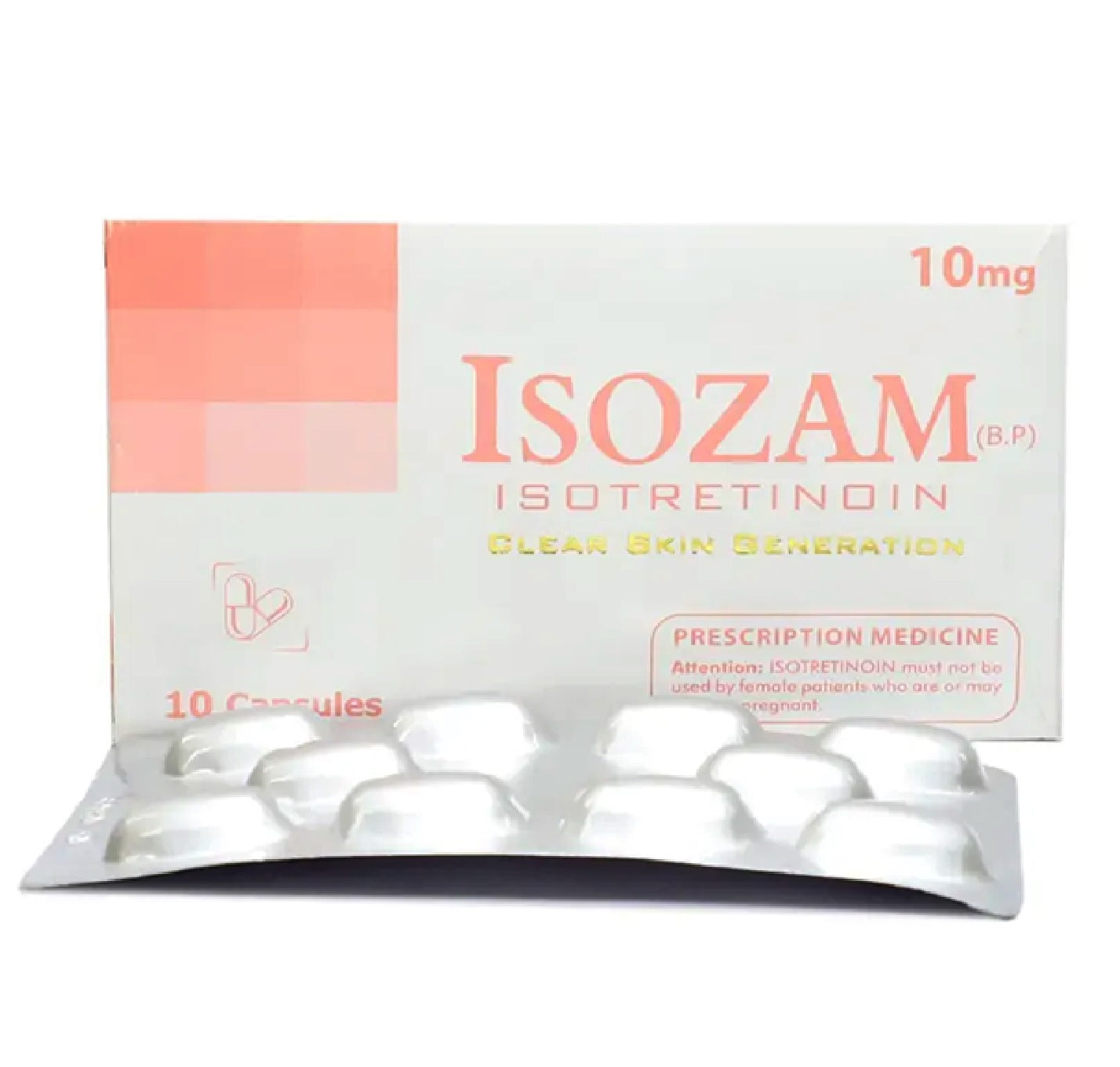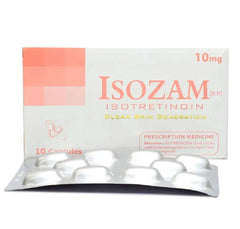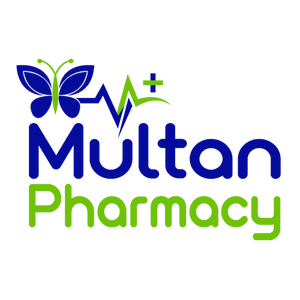Popular Products
- Rs.250.00
- Rs.250.00
- Unit price
- / per
- Rs.950.00
Rs.1,050.00- Rs.950.00
- Unit price
- / per
- Rs.199.00
Rs.0.00- Rs.199.00
- Unit price
- / per
Need Help?
03444440083
Popular Products
- Rs.250.00
- Rs.250.00
- Unit price
- / per
- Rs.950.00
Rs.1,050.00- Rs.950.00
- Unit price
- / per
- Rs.199.00
Rs.0.00- Rs.199.00
- Unit price
- / per


Isozam (10mg) 10 Capsules
- Rs.451.00
Rs.501.00- Rs.451.00
- Unit price
- / per
Couldn't load pickup availability
Standard Shipping
standard shipping charges on order is Rs 200
Returns Policy
You may return most new, unopened items within 3 days of delivery for a full refund.
You should expect to receive your refund within four weeks of giving your package to the return shipper, however, in many cases you will receive a refund more quickly. This time period includes the transit time for us to receive your return from the shipper (5 to 10 business days), the time it takes us to process your return once we receive it (3 to 5 business days), and the time it takes your bank to process our refund request (5 to 10 business days).
If you need to return an item, simply login to your account, view the order using the "Complete Orders" link under the My Account menu and click the Return Item(s) button. We'll notify you via e-mail of your refund once we've received and processed the returned item.
Delivery Within 5 - 7 Bussiness Days
Lorem ipsum dolor sit amet, consectetur adipiscing elit, sed do eiusmod tempor incididunt ut labore et dolore magna aliqua. Ut enim ad minim veniam, quis nostrud exercitation ullamco laboris nisi ut aliquip ex ea commodo consequat. Duis aute irure dolor in reprehenderit in voluptate velit esse cillum dolore eu fugiat nulla pariatur. Excepteur sint occaecat cupidatat non proident, sunt in culpa qui officia deserunt mollit anim id est laborum.
-
Description
Isotretinoin 10mg is a retinoid, a term associated with compounds derived from vitamin A. It is widely used to remedy acne, a condition marked by inflammation of the hair follicles and oil glands found in the skin. Isotretinoin 20mg effectively treats acne by reducing the size of the sebaceous glands which produce an oil that can trigger acne flares, and reducing the volume of oil produced. This technique prevents bacteria and oil buildup within the hair follicles, lessening the frequency of acne occurrences. Moreover, the anti-inflammatory properties of isotretinoin 20mg further alleviate the severity of acne symptoms by diminishing the activation of inflammatory molecules and restraining the movement of inflammatory cells toward the sites of inflammation. Isotretinoin 20mg has also been effective in treating other skin conditions like keratosis pilaris and acne rosacea, and even cystic fibrosis. It is crucial to emphasize that isotretinoin can cause catastrophic birth defects. Therefore, contraception among both males and females is mandatory when taking this medication.
-
Ingredients
Isotretinoin -
Drug Class
Retinoid
-
Dosage Form
Capsule
-
Uses
Unveiling its multifaceted uses and transformative applications as follows:
- Isotretinoin 10mg is chiefly employed to address severe acne vulgaris in individuals aged 12 and over. It reduces the production of sebum (natural skin oil) in the glands responsible for hair development and pores.
- Additionally, it is an effective and preventive treatment for specific types of cancers, including prostate cancer, lung cancer, and neuroblastoma (a form of childhood cancer).
- Isotretinoin has demonstrated promising results in reducing inflammation caused by pityriasis lichenoides, a type of skin rash, and is sometimes recommended to treat severe cases of psoriasis when other therapies have failed.
- It has been proposed as a topical therapy in higher doses for reducing or eliminating precancerous skin lesions (actinic keratosis) and other skin growths.
-
Dosage
Tailoring Treatment for Optimal Health, Prescribed Medication Dosage is:
- For acne- A person is prescribed isotretinoin 10mg once or twice daily depending on the severity of their condition and their response to the medication. The starting dose is 0.5-1.0 mg/kg/day, with an average dose of 40-60mg/day.
- For psoriasis- A patient is prescribed isotretinoin twice a week, with a typical dose of 0.25-0.5 mg/kg/dose.
- For other diseases- Isotretinoin 20mg is prescribed based on the specific condition and the patient's treatment response. It's important to consult with a healthcare professional before taking isotretinoin 20mg as the proper dosage relies on the individual's specific circumstances.
-
In case of Overdose
Acne is a condition that can vary in severity and cause physical and emotional discomfort. Isotretinoin is a powerful acne treatment medication that is prescribed to patients whose conditions have not responded to other treatments. This is because though it is effective, it comes with the risk of severe side effects. Overdose is extremely rare, but patients should still be aware of the treatment options. In the case of an overdose, it is vital to immediately seek medical attention as isotretinoin can lead to serious complications such as inflammatory bowel disease, liver damage, and osteoporosis. Long-term use can also cause dangerous birth defects. Therefore, reliable contraception is crucial for women of reproductive age taking isotretinoin. These cases are extreme and rare, but it is essential to understand the potential risks associated with this medication. Nonetheless, isotretinoin serves its purpose as an effective treatment for acne and can be safe if used properly and by following the instructions and precautions outlined by your physician.
-
Missed Dose
If you miss a dose of Isotretinoin, it is important to take action. You should take the missed dose as soon as possible unless it is close to the time for your next scheduled dose. In this case, you should skip the missed dose and revert to your regular dosage schedule. It is not recommended to double up on the dosage to make up for the missed dose. To ensure the best results and to minimize the risk of side effects, it is vital to maintain a regular dosing schedule. If you have any doubts or concerns about your missed dose, it is advisable to consult a medical professional such as your doctor or pharmacist for more guidance. This will help you resolve any issues and properly manage your medication going forward.
-
How To Use
Isotretinoin is a potent medication utilized in the treatment of acne and other skin conditions. This medication belongs to the class of drugs known as retinoids, which are derived from vitamin A. Isotretinoin is effective in reducing acne because it diminishes the size of the oil glands in your skin, which in turn lessens the production of oil and helps prevent the development of acne bacteria. This medication comes in different strengths, with 20mg being a common starting point for many users. It is typically taken with meals, usually with dinner, to prevent any discomfort in the stomach. It is important to swallow the pill whole and not crush it, as it has a bitter taste that can be irritating to your eyes, nose, and mouth. You must speak to your doctor before using Isotretinoin, as it is important to determine if the drug is suitable for your medical history and needs. Finally, it is recommended to avoid sunlight and wear sunscreen, as well as avoid alcohol and smoking while taking Isotretinoin.
-
When Not to Use
Discerning instances where this medication may not be appropriate:
- You are pregnant or planning to become pregnant. Isotretinoin is strictly contraindicated in pregnancy due to its high risk of causing severe birth defects.
- You are breastfeeding. Isotretinoin can pass into breastmilk and harm a newborn baby.
- You have any allergies to isotretinoin or similar medications in the same class (such as retinoids).
- You have any chronic ailments such as liver disease, kidney disease, or diabetes.
- You have a history of mental health issues, particularly depression or suicidal thoughts.
- You are taking any other medications, particularly those that can interact with isotretinoin.
- Your acne does not pose an immediate medical threat and is manageable. Isotretinoin is a powerful acne medication that is typically reserved for more severe cases.
-
Side Effects
Unraveling the side effects lurking behind this medications are as follows:
- Dry eyes and vision changes
- Peeling skin
- Nosebleeds
- Photosensitivity (increased sensitivity to sunlight)
- Joint and muscle pain
- Temporary hair thinning
- Headache
- Fatigue
- Insomnia
- Mood changes (depression, irritability)
- Elevated triglyceride and cholesterol levels
- Liver function changes
- Gastrointestinal symptoms (nausea, abdominal pain, diarrhea)
- Changes in blood cell counts
- Teratogenicity (risk of severe birth defects if taken during pregnancy)
- Increased susceptibility to infections
- Changes in wound healing
-
Precautions & Warnings
When using this medication, it is important to be aware of the following precautions and warnings:
- Caution is required for patients with diabetes mellitus, those at high risk for hypertriglyceridemia (such as individuals with a family history of lipid metabolism disorders, obesity, or increased alcohol intake), and those with dry eye syndrome.
- History of depression or psychiatric disorders and genetic predisposition to bone loss (including conditions like childhood osteoporosis, osteomalacia, or anorexia nervosa) should be considered.
- Avoid blood donation during and for at least one month after treatment. Refrain from aggressive chemical dermabrasion, cutaneous laser treatments, and wax depilation during and for at least 6 months after treatment.
- Be cautious if taking medications that may induce osteoporosis or osteomalacia or affect vitamin D metabolism, such as systemic corticosteroids and anticonvulsants.
- Avoid concurrent use with topical keratolytic or exfoliative anti-acne agents. The medication is not indicated for prepubertal acne.
- Use with caution in severe renal impairment and in children.
- Some oral products or formulations may not be interchangeable; consult specific product guidelines for details.
- For topical use, avoid application to sensitive skin areas (such as the neck) and in patients with a history of photoallergy or photodermatitis, skin cancer (personal or family history), or concomitant rosacea or perioral dermatitis. Delay therapy in the presence of sunburn until resolved and avoid application to eczematous skin.
-
Drug Interactions
Drug interactions with Isotretinoin include:
- Vitamin A supplements (risk of additive toxicity)
- Tetracycline antibiotics (e.g., doxycycline) (increased risk of intracranial hypertension)
- Progestin-only contraceptives (e.g., norethindrone) (possible reduced efficacy of isotretinoin)
- CYP450 inducers (e.g., rifampin) (may reduce isotretinoin levels)
- CYP450 inhibitors (e.g., ketoconazole) (may increase isotretinoin levels)
- Alcohol (potentially increased risk of liver toxicity)
- Warfarin (potential for enhanced anticoagulant effect)
-
Storage/Disposal
Store isotretinoin at room temperature, away from moisture, heat, and direct light. Keep it in its original packaging, tightly sealed, and out of reach of children and pets. Avoid storing it in the bathroom. For disposal, do not flush isotretinoin down the toilet or pour it into drains unless instructed. Follow local guidelines or use a drug take-back program to properly discard unused or expired medication, as improper disposal can pose environmental risks.
Related Products
Recently Viewed Products
- Choosing a selection results in a full page refresh.





